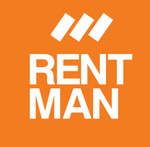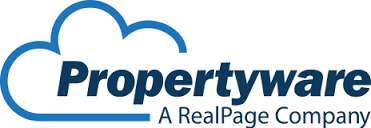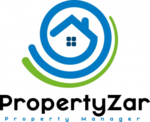Description
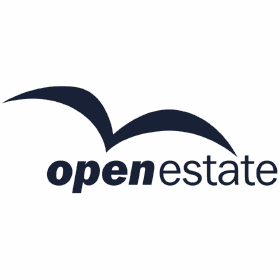
OpenEstate
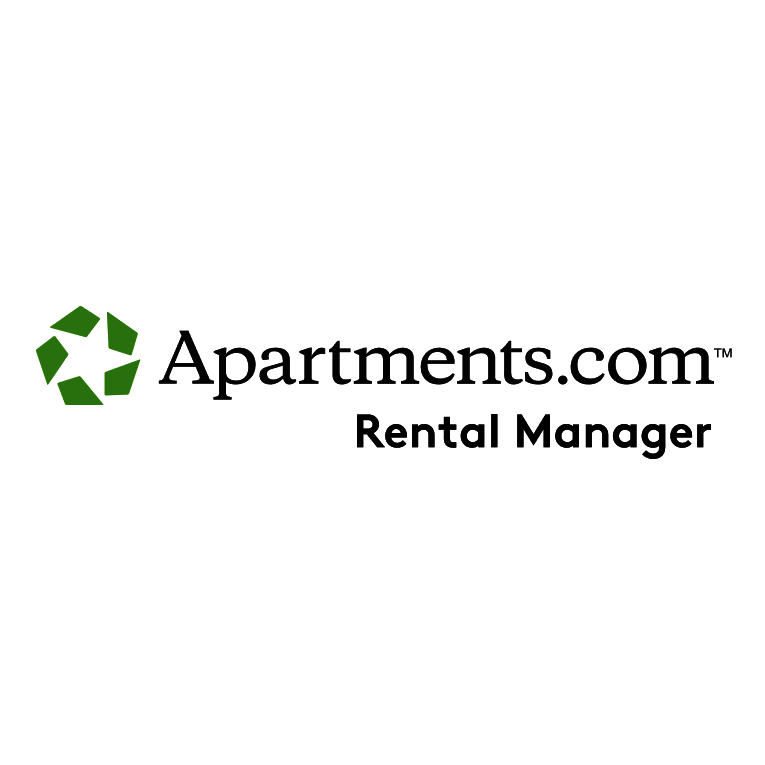
Apartments.com Rental Manager
Comprehensive Overview: OpenEstate vs Apartments.com Rental Manager
Overview of OpenEstate, Apartments.com Rental Manager, and Propertyware
a) Primary Functions and Target Markets
-
OpenEstate
- Primary Functions: OpenEstate is an open-source real estate management software designed for real estate professionals to manage property listings, client interactions, and transactions. It provides tools for managing real estate portals, processing requests, and generating property reports.
- Target Markets: It primarily targets small to medium-sized real estate agencies that require a customizable and cost-effective solution for managing property listings and client databases without the burdensome costs of proprietary software.
-
Apartments.com Rental Manager
- Primary Functions: Apartments.com Rental Manager is a comprehensive platform focused on rental property management. It offers landlords and property managers tools for listing properties, screening tenants, collecting rent payments, and managing leases.
- Target Markets: It targets individual property owners, landlords, and small to medium-sized property management companies looking to streamline their operations and increase their property’s visibility online.
-
Propertyware
- Primary Functions: Propertyware is a robust property management software solution, offering features such as accounting, tenant and lease tracking, maintenance management, and online portals for tenants and owners.
- Target Markets: It targets property management companies that handle single-family and low-density residential properties, catering especially to those managing larger portfolios looking for in-depth management tools and analytics.
b) Market Share and User Base
-
OpenEstate
- Open-source solutions like OpenEstate typically have a smaller, niche user base due to their open-source nature and reliance on community-driven development and customization. Having no central authority, precise market share is difficult to determine, but it is generally favored by tech-savvy agencies that have the resources to customize it to fit their needs.
-
Apartments.com Rental Manager
- As part of the larger Apartments.com network, the Rental Manager benefits from high visibility and has a significant user base within the U.S. rental market. It holds a substantial market share among landlords and small-scale property managers, leveraging the brand recognition and traffic of Apartments.com.
-
Propertyware
- Propertyware has a well-established presence in the U.S., with a strong user base among professional property management firms dealing with single-family homes. While not as large as some of its competitors targeting multi-family segments, it maintains a strong position in its niche.
c) Key Differentiating Factors
-
OpenEstate
- Open-Source Flexibility: Its open-source nature allows agencies to customize the software extensively to meet specific requirements, providing flexibility unmatched by proprietary systems.
- Cost-Effectiveness: Being open-source, it offers a cost-effective solution without licensing fees, appealing to small agencies or those with IT resources capable of customizing software.
- Community-Driven Development: The development and support depend heavily on the user community, which can be both an advantage in terms of innovation and a limitation in terms of consistent support.
-
Apartments.com Rental Manager
- Integration and Visibility: Benefits from seamless integration with the Apartments.com portal, offering increased visibility to millions of potential renters.
- User-Friendly Interface: Designed with an easy-to-use interface, it suits landlords and property managers with limited tech experience.
- Tenant-Centric Tools: Offers comprehensive tools that cover every aspect of tenant management, from screening to payment collection, making it a strong all-in-one solution for rental management.
-
Propertyware
- Comprehensive Management Features: Offers a more intricate set of tools tailored for larger property management operations, including robust accounting, maintenance tracking, and reporting features.
- Scalability for Larger Portfolios: Designed to handle larger portfolios, making it suitable for companies managing larger numbers of single-family or low-density units.
- Advanced Analytics and Reporting: Provides in-depth analytical tools, giving property managers insights into financial performance and operational efficiency.
By understanding these key aspects, businesses can better assess which of these platforms align with their needs based on size, specific functionalities, and the market they target.
Contact Info

Year founded :
Not Available
Not Available
Not Available
Not Available
Not Available

Year founded :
Not Available
Not Available
Not Available
Not Available
Not Available
Feature Similarity Breakdown: OpenEstate, Apartments.com Rental Manager
When comparing real estate property management platforms like OpenEstate, Apartments.com Rental Manager, and Propertyware, it's important to consider their core functionalities, user interfaces, and any unique features they may offer. Here’s a comparative breakdown:
a) Core Features in Common
-
Property Listings and Marketing:
- All three platforms allow users to create and manage property listings, including uploading photos, descriptions, and pricing. This helps attract potential tenants through various online channels.
-
Tenant Screening:
- They provide tenant screening services, which typically include background checks, credit checks, and rental history verification to help landlords evaluate prospective tenants.
-
Lease Management:
- These platforms support lease management, allowing landlords to create, sign, and store lease agreements digitally.
-
Payment Processing:
- They all offer online payment systems for collecting rent and fees, often with options for automatic payments and reminders.
-
Maintenance Request Management:
- Features for submitting and tracking maintenance requests are available, enabling landlords and property managers to efficiently handle repairs and upkeep.
b) User Interface Comparison
-
OpenEstate:
- OpenEstate is usually open-source or customizable, meaning the user experience can vary. Typically, it may not have as polished an interface as proprietary software but offers flexibility for customization to suit specific needs.
-
Apartments.com Rental Manager:
- Known for its user-friendly interface, Apartments.com Rental Manager is designed for ease of use. The platform offers intuitive navigation with clear, simple layouts aimed at both tech-savvy and non-tech-savvy users.
-
Propertyware:
- Propertyware generally provides a comprehensive and professional interface tailored to property management companies. It includes dashboards and detailed reporting tools, which might seem more complex but are powerful once mastered.
c) Unique Features
-
OpenEstate:
- Customization and Open Source Flexibility:
- As an open-source solution, OpenEstate offers high levels of customization, allowing users to modify the software to fit their exact requirements, which is unique compared to more rigid commercial products.
- Customization and Open Source Flexibility:
-
Apartments.com Rental Manager:
- Seamless Integration with Apartments.com Network:
- A key advantage is the integration with the Apartments.com network, offering extensive exposure to potential renters directly from the platform, which aids in quickly filling vacancies.
- Seamless Integration with Apartments.com Network:
-
Propertyware:
- Advanced Reporting and Analytics:
- Propertyware offers robust reporting and analytics features tailored for property management firms that need in-depth insights into their operations and financials.
- Vendor Management:
- Features for managing vendor relationships and contracts set it apart, providing a more holistic management experience for larger portfolios.
- Advanced Reporting and Analytics:
Each platform has its strengths and is suited to different needs and scales of property management operations. OpenEstate appeals to those needing flexibility and customization, Apartments.com Rental Manager is ideal for landlords looking for simplicity and wide reach, while Propertyware targets professional property management companies requiring comprehensive features and detailed analytics.
Features

Not Available

Not Available
Best Fit Use Cases: OpenEstate, Apartments.com Rental Manager
When evaluating OpenEstate, Apartments.com Rental Manager, and Propertyware, it's essential to understand how each platform caters to various business needs and project types within the real estate industry. Here's a breakdown of the best fit use cases for each:
a) OpenEstate:
-
Best Choice For:
- Real Estate Agencies: OpenEstate is an open-source platform designed primarily for real estate agencies looking for customizable, flexible software to manage property listings and client interactions. It's ideal for businesses that require a tailored solution without ongoing licensing fees.
- Developers and Tech-Savvy Teams: Since it's open-source, it's a great fit for development teams who can modify and extend the software to meet specific business needs and integrate it with other existing systems.
- International Operations: With multilingual support, OpenEstate is suitable for agencies operating in multiple countries or regions.
-
Catering to Industry Verticals or Company Sizes:
- Small to medium-sized real estate agencies that seek an adaptable, cost-effective solution without commercial software limitations.
- Suitable for tech-oriented businesses that have in-house capabilities to customize and maintain the platform.
b) Apartments.com Rental Manager:
-
Preferred Option For:
- Individual Landlords and Small Property Managers: This platform is best suited for individual landlords or small property management operations who need a straightforward, user-friendly tool for listing properties, collecting rent online, and managing tenants.
- Residential Property Focus: Designed specifically for residential property management, it streamlines tenant acquisition through the Apartments.com marketplace, one of the largest rental listing sites.
-
Catering to Industry Verticals or Company Sizes:
- Ideal for small-scale landlords or property managers who prioritize ease of use and access to a large pool of potential renters.
- Suitable for residential properties rather than commercial or mixed-use portfolios.
c) Propertyware:
-
Consider Over Other Options When:
- Large-Scale Residential Property Management: Propertyware is designed for managing extensive portfolios of residential properties, offering robust features like tenant screening, accounting, and maintenance management.
- Professional Property Managers: It's perfect for professionals seeking comprehensive solutions for operational efficiency, reporting, and tenant management.
-
Catering to Industry Verticals or Company Sizes:
- A more appropriate option for mid to large-sized property management firms dealing with a significant number of residential units.
- Provides specialized features catering to the unique needs of multifamily or single-family property management companies.
Summary:
- OpenEstate is best for real estate agencies seeking customizable, open-source solutions, particularly in international markets.
- Apartments.com Rental Manager excels for individual landlords and small property managers focusing on residential properties with the need for easy listing and tenant management.
- Propertyware stands out for larger property management businesses that require advanced functionalities for extensive residential property management portfolios.
Each product is tailored to cater to different business sizes, technical needs, and industry verticals, allowing users to choose based on their specific operational demands and growth plans.
Pricing

Pricing Not Available

Pricing Not Available
Metrics History
Metrics History
Comparing undefined across companies
Conclusion & Final Verdict: OpenEstate vs Apartments.com Rental Manager
When evaluating real estate management software such as OpenEstate, Apartments.com Rental Manager, and Propertyware, it's crucial to consider features, pricing, scalability, user interface, customer support, and integration capabilities. Here's a comprehensive conclusion and final verdict for each:
a) Best Overall Value:
Apartments.com Rental Manager generally offers the best overall value for landlords or property managers focusing on managing a small to mid-sized portfolio. It combines user-friendly interfaces with solid features at competitive pricing, especially for those managing multifamily properties. It also benefits from the significant audience reach and credibility of the Apartments.com platform.
b) Pros and Cons:
OpenEstate:
-
Pros:
- Open Source: Being open-source, it offers flexibility and customization that can be vital for tech-savvy users or those with specific needs.
- Community Support: Access to a community of developers can be beneficial for troubleshooting and finding free resources.
-
Cons:
- Complexity: May require technical expertise to fully leverage its capabilities and customize the system.
- Limited Official Support: Official support could be lacking compared to commercial solutions, leading to potential difficulties in troubleshooting.
Apartments.com Rental Manager:
-
Pros:
- Ease of Use: Known for its user-friendly interface, making it accessible for non-technical users.
- Audience Exposure: Listings gain significant exposure by being featured on the Apartments.com network.
- Comprehensive Tools: Offers essential tools for rent collection, tenant screening, and lease management.
-
Cons:
- Scalability Limitations: May not be ideal for very large portfolios or commercial property management.
- Fees for Certain Features: While listing is free, additional features (e.g., tenant screening) may incur fees.
Propertyware:
-
Pros:
- Feature Rich: Extensive features suitable for mid to large-sized portfolios, including robust reporting and financial tools.
- Customization: Offers considerable customization options and integrations with other property management solutions.
-
Cons:
- Cost: Typically comes at a higher price point, which may not offer the best ROI for smaller landlords.
- Complexity: Steeper learning curve and may require more time to fully utilize all features.
c) Recommendations:
For users deciding between these platforms:
-
Select OpenEstate if you have technical resources at your disposal and require a customizable and flexible solution with the freedom of open-source software. Be prepared for a potentially steep learning curve.
-
Choose Apartments.com Rental Manager if you manage small to mid-sized residential properties and prefer a straightforward solution with wide-reaching listing capabilities. It is ideal if ease of use and cost-efficiency are priorities.
-
Opt for Propertyware if you are managing a larger portfolio that requires comprehensive features, reporting capabilities, and scalability. It suits users who can justify the investment in return for robust functionality.
Ultimately, the decision should align with the size of your portfolio, budget considerations, and whether you prioritize ease of use or feature richness. Each platform has its strengths, and users should weigh these based on their specific management needs and future growth plans.
Add to compare
Add similar companies
